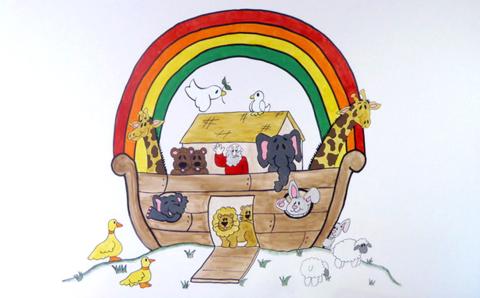C. S. Lewis wrote: “According to Christian teachers, the essential vice, the utmost evil, is Pride. Unchastity, anger, greed, drunkenness, and all that, are mere fleabites in comparison: it was through Pride that the devil became the devil: Pride leads to every other vice: it is the complete anti-God state of mind” (Mere Christianity).
One of the reasons I was attracted to the Christian Reformed Church is its intellectual robustness. That is arguably the Reformed tradition’s strength. It is also, I think, its greatest danger because it can lead to the sin of intellectual pride.
I confess that I struggle with intellectual pride myself. Ever since my youth, my intellect was the one strength that made me “successful.” Even after I became a Christian, I overly relied on my intellect to grow in faith and serve the church, devouring theological and spiritual books. My faith was more cerebral than emotional. Moments of “feeling right” occurred so rarely in contrast to “thinking right” in my spiritual journey that it showed an unhealthy imbalance.
I elevated my intellectual ability to comprehend God’s truths as the main way (or the only way?) for me to relate to God. I used theological knowledge as a spiritual yardstick. I looked down on as spiritually immature those who knew less than me. I was a proud young man who thought he knew a lot about God, about Scriptures and theology. I was often critical of and argumentative with those who differed from me theologically. I still have to suppress this judgmental urge today. Intellectual pride is the spiritual thorn in my flesh. Unfortunately, I think it is also prevalent among many Christian Reformed folks—clergy and lay people alike.
Scripture teaches that “God opposes the proud but shows favor to the humble” (James 4:6; 1 Pet. 5:5b; Prov. 3:34). God had to humble me through a period of dark depression that nearly caused me to fail university. By God’s grace, I received help for my depression and was able to resume my studies. Now, older and (I hope) wiser, I know how much I still do not know. I see now with greater clarity the human mind’s limits, our confirmation and negativity biases, and how foolish I was—as anyone is—to overly depend on intellect.
We should be grateful to God for the robust intellectual gifts of the Reformed tradition. But we cannot be blind to the very real temptation of loving the gifts more than the Giver. Have we loved our Reformed theology and confessions more than the God they point to? Are we so intellectually arrogant that we fail to learn from “non-Reformed” Christians? Have we so idolized our Reformed theological system to the point that we cannot even question it?
I believe God has a role for the Reformed tradition and the CRC in his divine mission—thus there is all the more urgency for us to repent and be proper vessels for God’s glory. I hope God does not have to resort to drastic measures to humble us as a denomination before we can repent of our intellectual pride. But I trust that God, who began a good work in us, “will carry it on to completion until the day of Christ Jesus” (Phil. 1:6). God, and God’s mission, will not fail.
About the Author
Shiao Chong is the former editor-in-chief of The Banner. He served as editor from 2016 to 2025. He attends Fellowship Christian Reformed Church in Toronto, Ont.
Shiao Chong es el redactor jefe de The Banner. El asiste a Iglesia Comunidad Cristiana Reformada en Toronto, Ont.
시아오 총은 더 배너 (The Banner)의 편집장이다. 온타리오 주 토론토의 펠로우쉽 CRC에 출석한다.
You can follow him @shiaochong (Twitter) and @3dchristianity (Facebook).







